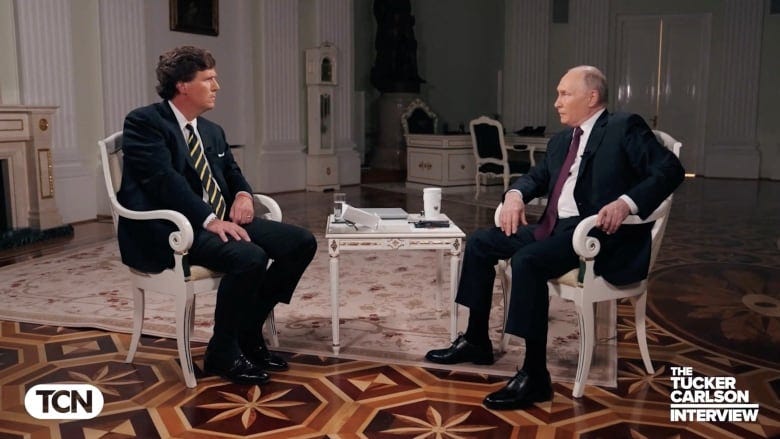Murray Hunter
How is the Tucker Carlson interview with Russian President Putin relevant to Malaysian perspectives?

MURRAY HUNTER

The awaited interview of Russian President Vladimir Putin by the legendary commentator journalist Tucker Carlson was aired on X (Twitter) on Friday morning, Asian time. In the build up to the interview, some European leaders made threats of blocking Tucker Carlson from travel through the EU. Others awaited to see Putin’s perspectives on the Russo-Ukraine war, and other détente issues.
What the world witnessed was the typical Putin calmness in explaining the Russian perspective of the world. As the interview progressed, viewers could see the Putin calmness overwhelm the usual Carlson excitement on screen.
History makes the present
Putin took a deep historical perspective in answering Carlson’s first question about the reasons for the war in the Ukraine. Putin went into twelve hundred years of Russian history to put context to the current war. In his 45-minute answer, Putin added cultural, clan, and shared experience into the tedious description of history.
This is something Malaysia can learn from. Malaysia’s history goes back to previous empires that existed within Nusantara, full of different cultures and ethnic groups, looking for a way to co-exist in peace and prosperity. This is very much missing in Malaysian perspectives today, and has been ignored from any policy perspectives.
Putin explained Russian and the former Soviet Union approach to value different cultures, languages, religions, and races, where universal outlooks were formed and shaped through this diversity.
The changing world
Carlson, after roaming the streets of Moscow for the last few days, asked Putin about his views of the future geopolitical order. Putin pointed out the decline of influence of the G7 in world trade and the rise of the BRICS. He recognised China for what it really is, the largest economy in the world. Putin suggested much of the decline of the west has been self-inflicted, being counterproductive to their espoused aims.
This is a conformation on Malaysia’s long non-aligned approach to foreign policy. This is also a warning for Malaysia not to follow the west as it has been heading towards of late, and stay on its traditional non-alignment. Malaysia’s traditional non-alignment of the past had always kept the country in great stead.
Changing modes of trade
Putin talked about the decline of the USD and the rise of alternative means of trade. Hence, the future opportunities and for trade and investment may not necessarily come from traditional sources. With Malaysia’s current foreign investment and trade situation, the BRICS may be an important avenue to explore.
The war in Ukraine
Putin was given ample time by Carlson to explain Russia’s side of the conflict. Putin confirms the suggestion that much of current world tension is occurring because other parties are not willing to talk, discuss, and come to the negotiating table, like they once used to.
There are lessons here for Malaysia in the South China Sea. Multi-lateral frameworks may be safer than acting as a single sovereign state when negotiating with the superpowers.
Humility doesn’t mean being soft
One could see a sense of humility within Putin’s demeanour during the interview. This is in contrast to the ruthlessness, he is painted by what is written and broadcast about him. However, what was absolutely clear, is this persona doesn’t in anyway point to softness.
Leadership and rule through humility, is another paradigm from leadership laced with arrogance Malaysians have seen over decades of leaders. Humility doesn’t weaken steadfastness, proudness, and any strong sense of direction. Such a style of leadership shows deep thinking behind the actions taken. This is a leadership trait that the late Nik Aziz of Kelantan had, when PAS had a sense of spirituality about it.
The danger of an artificial state
Finally, Putin talked about the dangers of an artificial state, which are constructed of peoples’ with different histories, cultures, and languages. Malaysia, like Soviet Ukraine was a construct, rather than a natural state. ‘Ukrainizing’ the state brought about racial problems, which is part of the reason for what is happening today in Ukraine.
This is an issue very relevant to Malaysia today. Parts of Malaysia are separated by water and remote borders. Malaysia must gain insights into case studies of artificial states around the world and construct a real nation building program to bind the nation together as one.
Nauseating Murray Hunter ampuing the War Criminal Putin.
ReplyDeleteHow much more nauseating than yr know nothing farts?
Delete